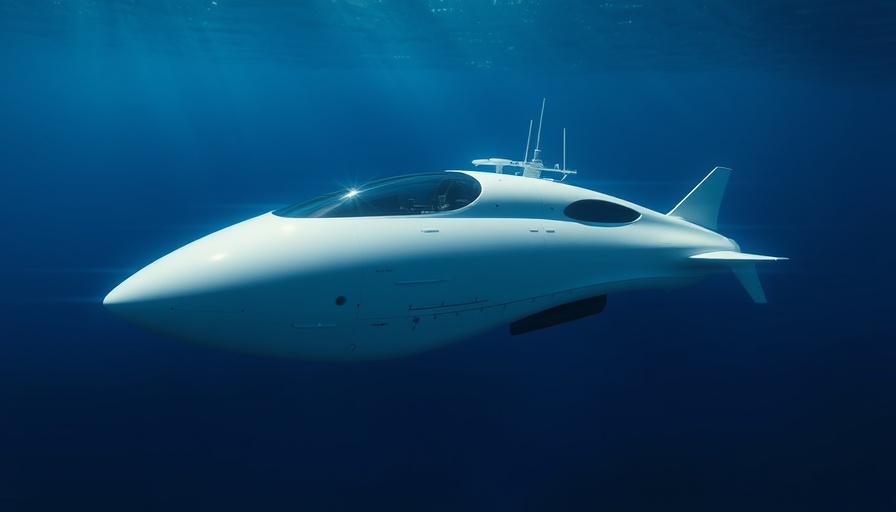
Understanding the Titan Submersible Tragedy
The tragic implosion of OceanGate's Titan submersible during a June 2023 dive to the Titanic’s depths highlights urgent issues surrounding safety in innovative marine designs. A recent report by the U.S. Coast Guard's Marine Board of Investigation (MBI) attributes the loss of five lives to a lethal combination of inadequate design, negligence in safety protocols, and a toxic workplace culture at OceanGate. This multifaceted disaster serves as a stark reminder of the perils of operating outside established safety standards.
Impacts of Inadequate Design and Oversight
The MBI report paints a picture of a company that faltered on multiple fronts. Poor engineering protocols, lack of adherence to inspection routines, and a culture that fostered intimidation rather than safety were all cited as primary factors leading to the submersible’s tragic fate. Jason Neubauer, chair of the MBI, emphasized, “There is a need for stronger oversight and clear options for operators who are exploring new concepts outside of the existing regulatory framework.” Without third-party oversight and with inadequate employee expertise, OceanGate’s oversight failures became starkly evident by the time of the incident.
The Role of Workplace Culture in Safety
One of the deeply concerning revelations from the MBI report is the toxic workplace culture that existed within OceanGate. The firm reportedly employed intimidation tactics and created confusion around regulations, allowing it to evade necessary scrutiny. Such an atmosphere not only neglects safety protocols but can also discourage employees from reporting unsafe practices. A healthy corporate culture should prioritize transparency and encourage internal reporting, essential for preventing future tragedies.
The Need for Stronger Regulations in Marine Operations
The report urges an overhaul of both domestic and international regulations governing submersible operations. OceanGate's ability to operate outside of established deep-sea protocols severely undermined a historically commendable safety record in this field. Recommendations include limiting the designations of oceanographic research vessels, extending oversight to all submersibles conducting scientific or commercial dives, and enhancing Coast Guard resources for proactive inspections.
Lessons Learned and Future Predictions
The Titan disaster is more than a cautionary tale; it serves as a critical learning opportunity for the maritime industry. It underlines the need for robust oversight that adapts to emerging technologies. As maritime exploration grows more innovative, the balance between encouraging creativity and maintaining rigorous safety standards becomes paramount. Moving forward, industries will need to ensure that pioneering designs are met with stringent safety regulations, avoiding the pitfalls that led to the Titan implosion.
The Path Forward: Implementing Changes Post-Titan
In response to the findings of the MBI report, actions are anticipated from the commandant of the Coast Guard to enhance maritime safety. The report's 17 recommendations aim to fortify the framework guiding submersible operations and close existing regulatory gaps. The focus will increasingly shift towards ensuring accountability coupled with innovation in submersible design and operation. This tragedy illustrates the real human costs of regulatory inadequacies and has the potential to usher in constructive changes across the industry.
How Does Workplace Culture Impact Your Job?
The implications of the Titan incident extend beyond maritime regulation; they resonate with many industries facing similar issues of workplace toxicity and inadequate oversight. Workers in any sector must advocate for environments that prioritize both psychological safety and operational integrity. Building a workplace that encourages employees to voice concerns without fear of retribution is vital to preventing such disasters and ensuring a productive workforce.
Take Action: Advocate for a Positive Workplace
Considering the facade of a toxic workplace culture at OceanGate, individuals in any job should reflect on their work environment. Is it fostering innovation and safety? Or is it stifling honest communication and safe practices? Advocating for positive change at work can significantly improve not only employee satisfaction but also overall productivity and safety. Examine your work culture and consider how a shift towards transparency could benefit everyone involved.
 Add Row
Add Row  Add
Add 




Write A Comment